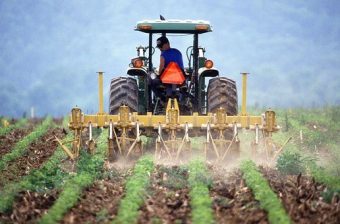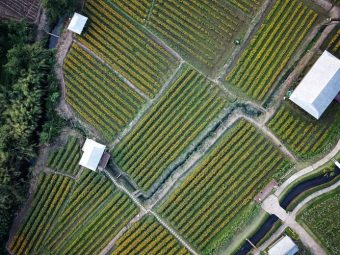
The governments of Ecuador, India, Kenya, Laos, Philippines, Uruguay, and Vietnam have come together to launch a 379 million dollars initiative to combat pollution from the use of pesticides and plastics in agriculture.
Chemicals play a crucial role in farming, with nearly 4 billion tons of pesticides and 12 billion kg of agricultural plastics used every year.
Despite their benefits for food yields, these chemicals pose significant risks to human health and the environment. As many as 11,000 people die from the toxic effects of pesticides annually, and chemical residues can degrade ecosystems, diminishing soil health and farmers’ resilience to climate change. The opening burning of agricultural plastics also contributes to an air pollution crisis that causes one in nine deaths worldwide.
Highly hazardous pesticides and mismanaged agricultural plastics release toxic persistent organic pollutants (POPs) – chemicals which don’t break down in the environment and contaminate air, water, and food. These inputs are generally cheaper than sustainable alternatives, giving farmers little incentive to adopt better practices.
The Financing Agrochemical Reduction and Management Programme – or FARM – led by the UN Environment Programme (UNEP) with financial support from the Global Environment Facility (GEF), seeks to change that, elaborating the business case for banks and policy-makers to reorient policy and financial resources towards farmers to help them adopt low- and non-chemical alternatives to toxic agrochemicals and facilitate a transition towards better practices.
More:
- HOW AGRICULTURE ENDANGERED THE WORLD’S MOST BIODIVERSE SAVANNAH
- MORE ACTION NEEDED IN THE EU TO REDUCE THE IMPACTS OF CHEMICAL PESTICIDES
- AQUAPONICS – A QUIET ECOLOGICAL REVOLUTION IN AGRICULTURE
The five-year programme is projected to prevent over 51,000 tons of hazardous pesticides and over 20,000 tons of plastic waste from being released, while avoiding 35,000 tons of carbon dioxide emissions and protecting over 3 million hectares of land from degradation as farms and farmers convert to low-chemical and non-chemical alternatives.
“Our current agricultural system relies on harmful chemicals, this is not necessary. FARM offers a powerful alternative model, empowering farmers with the knowledge and resources to transition to sustainable practices that safeguard our health and environment and also boost yields and profits,” said Anil Sookdeo, Chemicals Coordinator at the GEF.

To do this, the FARM programme will support government regulation to phase out POPs-containing agrochemicals and agri-plastics and adopt better management standards, while strengthening banking, insurance and investment criteria to improve the availability of effective pest control, production alternatives and trade in sustainable produce.
“Food productivity and safety is reliant on identifying better practices and safer alternatives to highly hazardous pesticides,” Sheila Aggarwal-Khan, Director of UNEP’s Industry and Economy Division, said. “Adoption is key to scaling these alternatives. There is no real option other than a strong, coordinated response to the pollution crisis.”
The FARM launch event convened representatives from all seven countries, with over 100 partners and stakeholders directly involved in the programme, including public and private banks, policy makers, farmer cooperatives, agrochemical and plastic manufacturers, international organisations, civil society, academia, and retailers.
It marks a step change in collaborative efforts between governments, financial institutions, farmers and manufacturers to combat agricultural pollution, paving the way for a more equitable and resilient food system.
Source: UNEP



